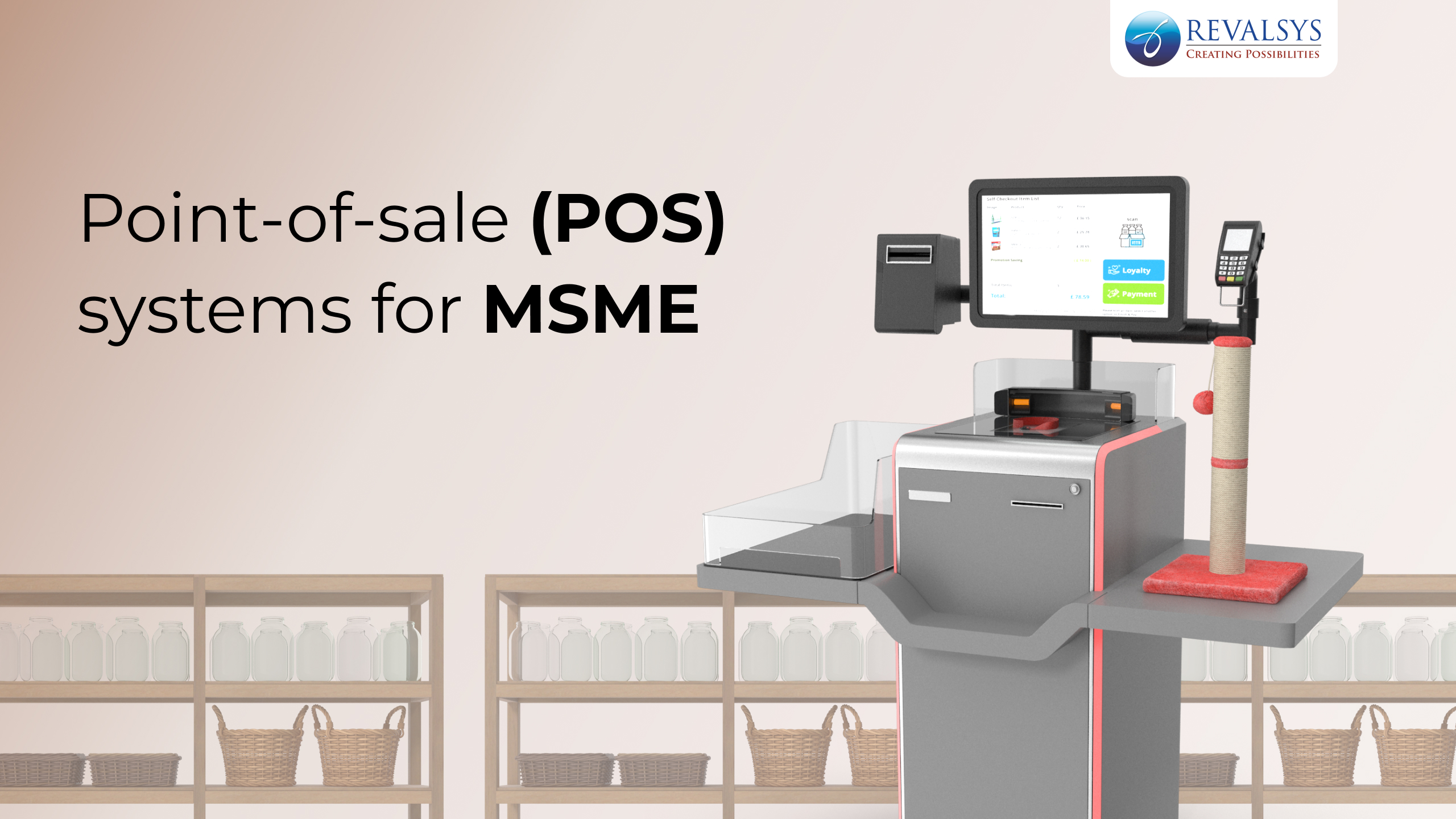
Running a business in today’s digital era is no easy feat — especially for Micro, Small, and Medium Enterprises (MSMEs) that juggle tight budgets, limited staff, and growing customer expectations. Every transaction count, every sale matters, and every minute saved can mean higher profits.
Now imagine this a system that not only handles your billing but also tracks your stock in real time, analyses your sales trends, manages customer loyalty, and accepts every modern payment method all from one screen. Sounds futuristic? Not anymore.
That’s the power of a modern Point-of-Sale (POS) system. What was once just a cash register has evolved into a full-fledged business command centre — connecting sales, inventory, finance, and customer experience in perfect harmony.
For MSMEs, adopting a smart POS isn’t just about faster billing; it’s about running smarter, scaling faster, and competing stronger in a digital-first marketplace. In this blog, let’s explore the key advantages of POS systems for MSMEs, how they transform day-to-day operations, and why investing in one could be your best business move this year. In this post, we explore the key advantages of POS systems for MSME, best practices, and how to choose one that fits your needs.
What is a POS System?
A POS system (Point of Sale) refers to the hardware + software combination used to process sales transactions. It typically includes a terminal (or tablet/desktop/Mobile), cash drawer, barcode scanner, receipt printer and POS software that handles sales, inventory and backend operations.
Modern POS systems are often cloud-based, meaning that data syncs in real time, can be accessed remotely, and integrates with other systems (accounting, e-commerce, CRM)
For MSMEs, shifting from manual or legacy cash registers to a full-featured POS system means moving from reactive to proactive business management less guesswork, more data, less manual labour.
Key Advantages of POS Systems for MSME
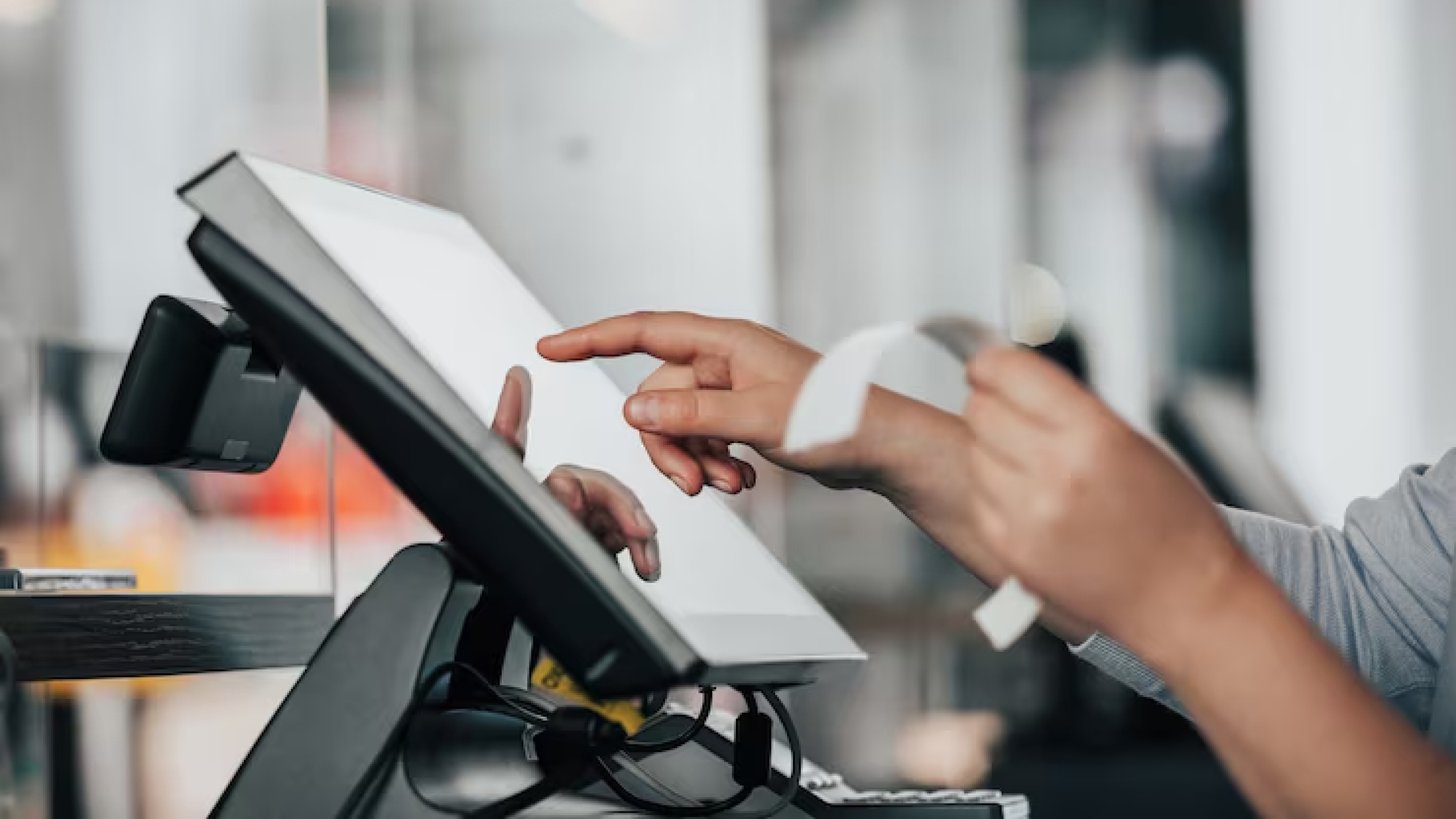 Below are the major benefits that MSMEs can gain from deploying a POS system.
Below are the major benefits that MSMEs can gain from deploying a POS system.
1. Faster & More Efficient Checkout
One of the most immediate advantages is speeding up the checkout process. A POS system centralizes scanning, price calculation, tax application, payment processing, and receipt issuance — all automated. This reduces customer wait times and friction at the point of sale.
For MSMEs, this means:
- Better turnover during peak hours
- Less abandoned carts or walk-outs due to long lines
- Staff can focus on serving rather than manual price lookups
2. Accurate, Real-Time Inventory Management
One of the most powerful advantages is inventory control. Every sale, return, or adjustment is logged instantly, updating stock levels. This real-time visibility helps avoid stockouts or overstocking.
Key sub-benefits:
- Automated alerts for low stock
- Automatic reordering thresholds
- Batch tracking, SKU management, and multiple location/inventory management
- Better purchasing decisions with historical data
This alone saves time, reduces human errors, and helps in better cash flow management (by not tying up capital in unsold goods).
3. Rich Analytics & Business Insights
POS systems generate detailed reports and dashboards: sales trends, top/slow products, peak hours, average ticket size, staff performance, etc.
For MSMEs, these insights can inform decisions like:
- Which products to promote or discontinue
- Best times/days to run offers
- Staffing optimization (allocate more staff during busy times)
- Pricing adjustments or discount strategies
With data, business decisions shift from guesswork to evidence.
4. Improved Customer Relationship & Loyalty
A modern POS system can store customer profiles, purchase history, and preferences. That enables loyalty programs, targeted promotions, and personalized offers.
Some advantages:
- Upsell or cross-sell based on past purchases
- Reward repeats customers, improving retention
- Email or SMS campaigns using data from POS
- Better customer experience (faster returns, tailored discounts)
This deepens customer engagement, critical for MSMEs competing with larger players.
5. Multi-Payment & Omnichannel Support
Modern POS systems support a variety of payment modes, credit/debit cards, mobile wallets (e.g., Google Pay, Apple Pay), contactless (NFC), QR codes and even split payments.
For MSMEs, this flexibility helps:
- Cater to customer preferences
- Avoid lost sales due to payment incompatibility
- Enable sales across online + offline channels (omnichannel)
- Synchronize inventory across store & e-commerce
This adaptability is vital as consumers increasingly expect seamless digital payments.
6. Minimized Errors & Fraud Protection
Manual sales and inventory systems are prone to human error miscounted stock, mispriced items, misplaced data. POS systems automate much of this, reducing mistakes.
Additionally, many POS systems incorporate security features:
- Role-based access (different permissions for staff)
- Data encryption for payment transactions
- Audit logs and transaction trails for accountability
- Secure cloud backups to prevent data loss
This helps protect the MSME from internal theft, accidental mistakes, or data breaches.
7. Scalability & Centralized Management
As MSMEs grow (new branches, additional outlets), a POS system can scale accordingly. Central dashboards let you monitor multiple locations from one system, synchronize stock transfers, and maintain consistency.
New outlets can be onboarded quickly with the same software, and you can compare performance across locations in real time.
8. Reduced Administrative Overhead
With many manual tasks automated (report generation, stock adjustments, sales summaries, reconciliation), the time spent in back-office work drops significantly.
This gives MSME owners and staff more bandwidth to focus on growth activities marketing, customer engagement, vendor relations rather than repetitive chores.
9.Better Cash Flow & Decision Making
Because you get timely sales and inventory data, you can make sharper financial decisions: when to reorder, which products yield better margins, when to run a promotion, how to manage cash. The visibility helps reduce working capital tied up in excess inventory. Also, real-time reconciliation reduces surprises at month-end.
10. Enhanced Brand Image & Customer Trust
Using a modern POS conveys professionalism. Quick checkouts, digital receipts, loyalty programs, and multiple payment options make your business feel modern and customer friendly. Over time, that improves reputation and customer trust.
How do POS systems work?
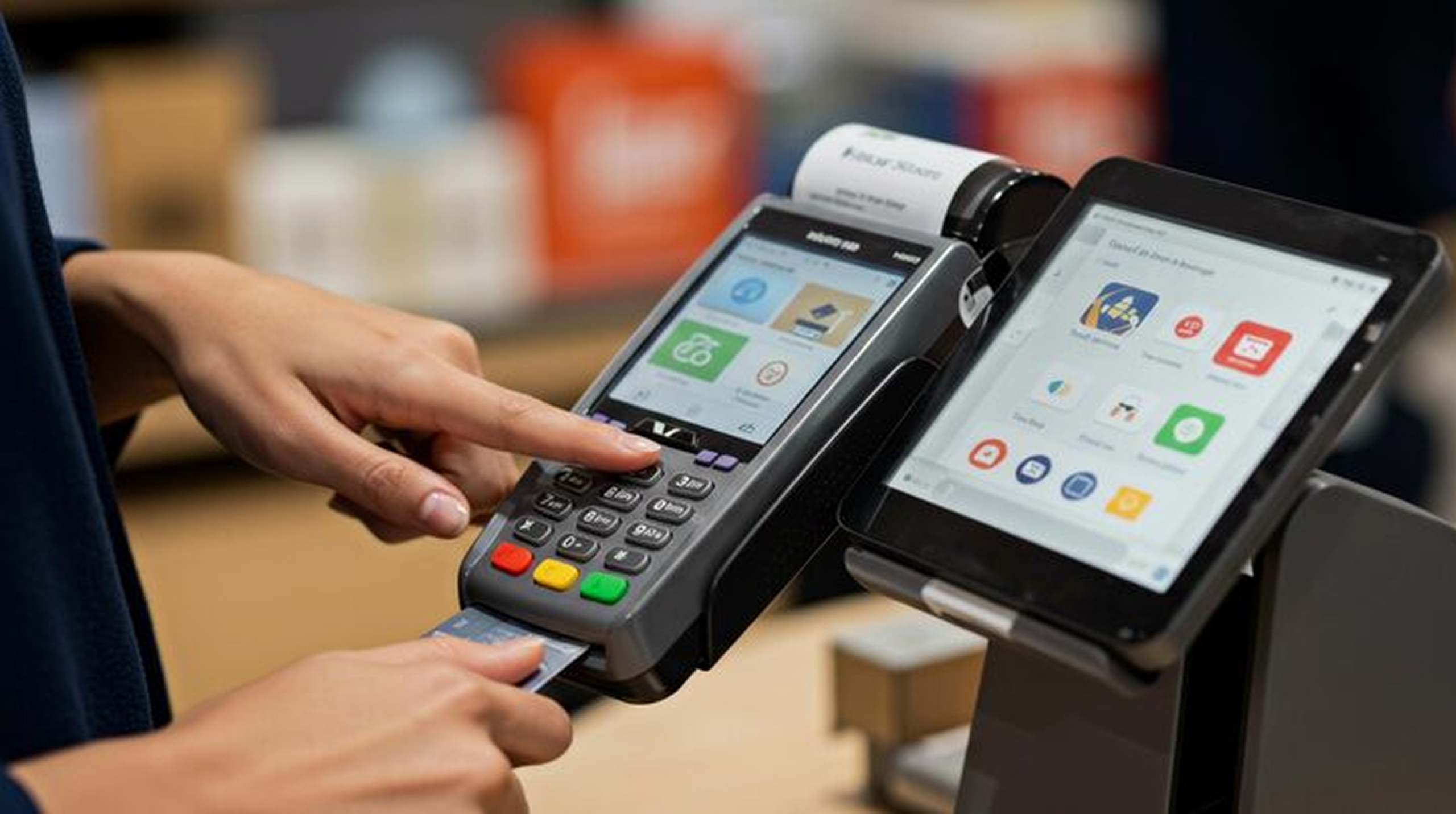 1. RevalPOS is described as a smart cloud-based Point of Sale software, indicating it offers the modern advantage of 24/7 access and multi-store management from a centralized dashboard.
1. RevalPOS is described as a smart cloud-based Point of Sale software, indicating it offers the modern advantage of 24/7 access and multi-store management from a centralized dashboard.
2. It is designed to be a unified solution that connects in-store sales with online portals, offering a key benefit of real-time inventory and customer data synchronization across all channels.
3. RevalPOS integrates seamlessly with RevalERP, allowing for a complete synchronization of sales data with finance, procurement, and inventory modules to streamline the entire business workflow.
4. The system facilitates fast and error-free transactions through a touch-friendly interface with features like barcode scanning and quick search, aimed at improving customer experience.
5. It provides advanced business tools, including real-time stock tracking with automated low-stock and expiry date alerts to help businesses avoid stockouts and overstocking.
6. RevalPOS supports integrated payments, accepting a wide variety of methods such as cards, UPI, wallet payments, and cash, ensuring compliance and easy reconciliation.
7. It features GST & Tax Automation, applying tax rules automatically and generating compliance-ready invoices and reports.
Challenges & Considerations
It’s fair to mention a few caveats so MSMEs go in with eyes open:
- Initial cost & recurring fees: Hardware, software licenses, transaction fees, support costs. Some POS systems may require monthly subscriptions.
- Dependence on internet/technology: If your POS is cloud-based, connectivity outages may hamper operations. Offline mode support helps mitigate this risk.
- Learning curve/training: Staff need time to adapt, especially if they are used to legacy or manual systems. Transition planning and training are essential.
- Integration & compatibility: If existing systems (accounting, inventory, ERP) are incompatible or poorly integrated, synchronization issues may arise.
- Security & data privacy: Handling payment data comes with responsibility; selecting a POS that follows security standards (e.g., PCI DSS) is critical.
Despite these challenges, for most MSMEs the benefits far outweigh the costs especially over medium to long term.
How to Choose the Right POS System for Your MSME
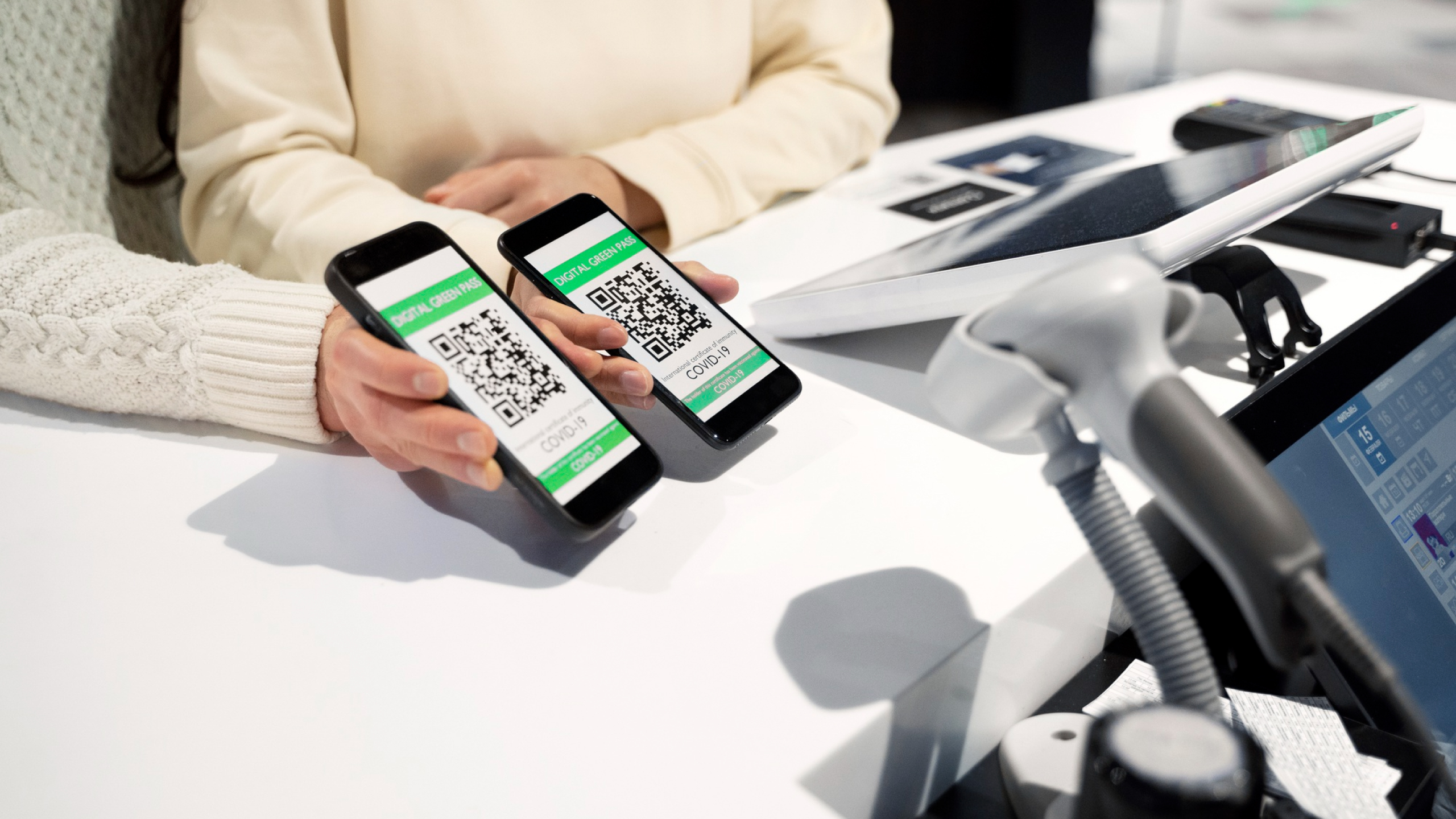 Here are some criteria and tips when selecting a POS system:
Here are some criteria and tips when selecting a POS system:
1. Core features that match your business needs
- Inventory management (low stock alerts, batch/expiry tracking)
- Reporting and analytics
- Multi-payment support
- Customer loyalty/CRM
- Multi-outlet support
2. Scalable and modular architecture
- Can you add modules later (e.g., e-commerce, integration)
- Can it handle multiple store locations
3. Ease of use & intuitive UI
- The simpler the interface, the faster staff adoption
- Demo on real workflows (billing, returns, inventory updates)
4. Integrations & API
- Does it integrate with your accounting software, e-commerce platform, CRM, etc.?
- APIs or plugins availability
5. Offline capability & reliability
- Does it work even when internet is down?
- Local caching or fallback modes
6. Security & compliance
- Encryption, role-based access, audit logs
- Compliance with necessary payment/data security standards
7. Total cost of ownership (TCO)
- Initial hardware & setup
- Software/subscription fees
- Payment/transaction commissions
- Support, maintenance, upgrades
8. Vendor reputation & support
- Customer reviews, case studies
- Local support availability
- Training and documentation
9. User community & updates
- Regular feature updates, bug fixes
- Active user community or forums
10. Mobile-Friendly & Cloud-Accessible
- Choose a POS system that works on smartphones and tablets for on-the-go management
- Cloud-based dashboards let owners monitor sales, stock, and performance anytime, anywhere
Use-Case Scenarios
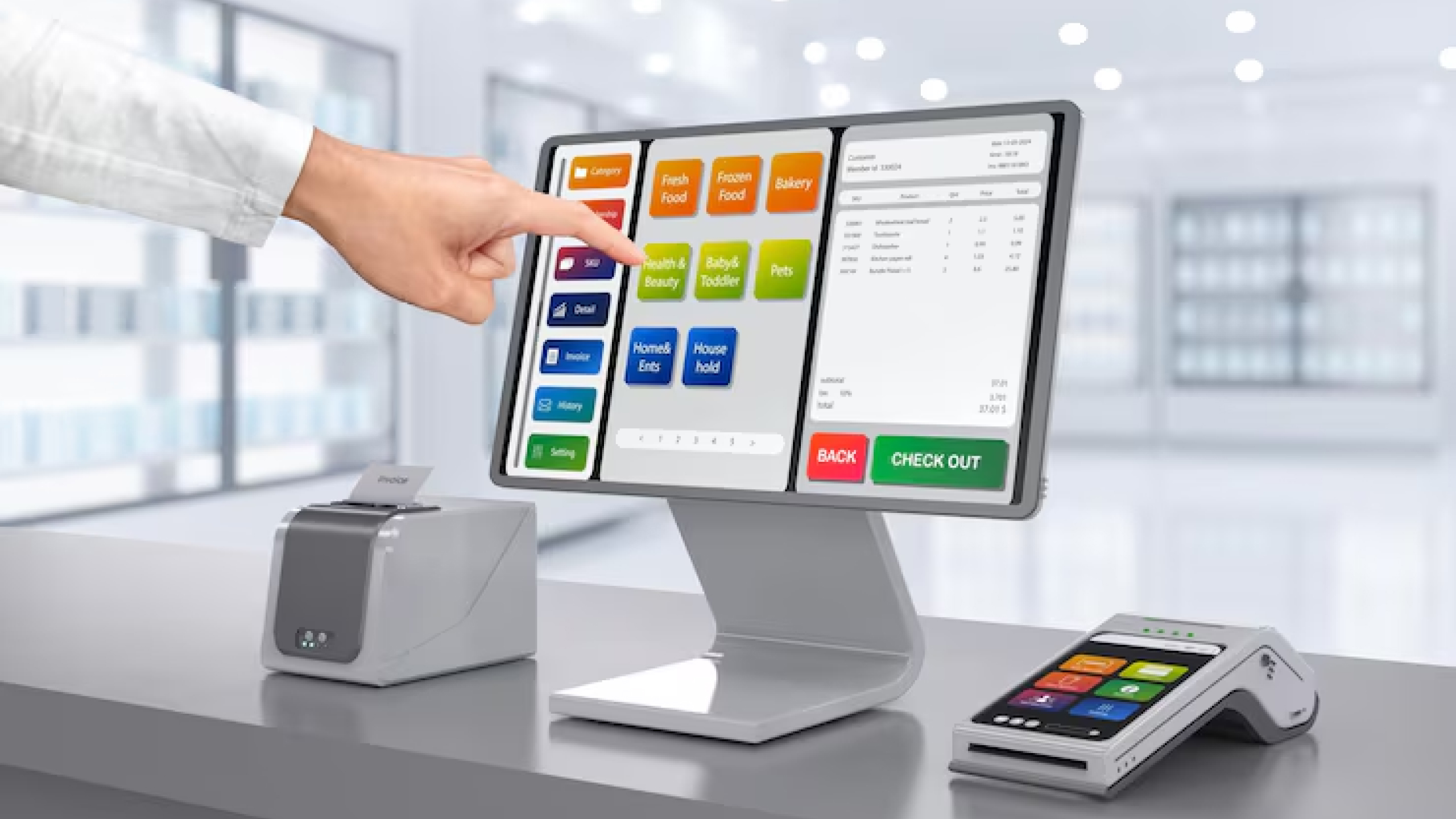 1. Retail Boutique (Clothing & Accessories) – POS systems help retail boutiques manage complex inventories with multiple SKUs, colours, and sizes. They enable real-time stock visibility, easy returns, and quick billing while also supporting discount campaigns and loyalty programs to retain regular customers.
1. Retail Boutique (Clothing & Accessories) – POS systems help retail boutiques manage complex inventories with multiple SKUs, colours, and sizes. They enable real-time stock visibility, easy returns, and quick billing while also supporting discount campaigns and loyalty programs to retain regular customers.
2. Café & Quick Service Restaurant (QSR) – In cafes and QSRs, POS solutions simplify fast-paced transactions with features like order queue management, table mapping, and split billing. Integration with kitchen display systems ensures orders are relayed instantly, minimizing confusion and improving service speed.
3. Multi-Outlet Retail Chain – For small retailers managing multiple outlets, POS systems offer centralized control. Businesses can easily transfer stock between locations, standardize pricing, and view consolidated sales reports, ensuring data-driven decision-making across branches.
4. Service-Based Businesses (Salons & Spas) – Salons and spas use POS systems to manage appointments, billing, and inventory of consumables. They also track customer visits, manage service packages, and implement reward programs that keep clients returning regularly.
5. Restaurants & Cloud Kitchens – POS systems designed for restaurants handle dine-in and takeaway orders efficiently. For cloud kitchens, they integrate with online delivery platforms, sync menu updates, and generate real-time reports on food sales, ingredient usage, and peak hours.
6. Supermarkets & Grocery Stores – In supermarkets, POS systems ensure fast barcode billing, price accuracy, and inventory synchronization. They also manage batch and expiry tracking, automate restocking alerts, and support GST-compliant invoicing for seamless compliance.
7. Pharmacies & Medical Stores – Pharmacies rely on POS software to handle prescription billing, batch tracking, and expiry management. It helps prevent sales of outdated stock, streamline supplier management, and maintain complete visibility from purchase to sale.
8. Hardware & Electronics Stores – In hardware or electronics shops, POS systems record serial numbers, manage warranties, and process repair returns. They track high-value items, handle multiple payment types, and maintain supplier records for better after-sales service.
9. Educational Institutions (Canteens & Campus Stores) – School and college canteens or campus stores benefit from POS systems through cashless payments, easy stock control, and transparent reporting. Administrators can track daily transactions, expenses, and inventory from a single dashboard.
10. Event & Ticketing Counters – POS systems in event management enable quick ticket generation, barcode scanning, and real-time seat tracking. They integrate both online and offline bookings, ensuring accurate accounting and preventing overbooking.
11. Hotels & Resorts (Front Desk & Dining POS) – Hotels use POS systems for integrated billing across rooms, restaurants, and bars. Guests can combine all charges into one invoice, while the system automatically syncs with the front desk for smooth check-outs and record-keeping.
12. Manufacturing & Distribution Outlets – Manufacturers and distributors use POS systems to manage retail and wholesale billing, track product movement, and reconcile sales data. The system ensures price consistency and helps maintain real-time visibility across distribution points.
Conclusion
For MSMEs aiming to modernize and scale, a POS system is not just a billing device, it’s a strategic platform. With benefits across operations, inventory, analytics, customer relations, and payment flexibility, a POS system can transform how a micro or small business operates.
The upfront costs and learning curve may appear daunting, but the payoff in time savings, error reduction, better decisions, and customer satisfaction makes the investment worthwhile.
